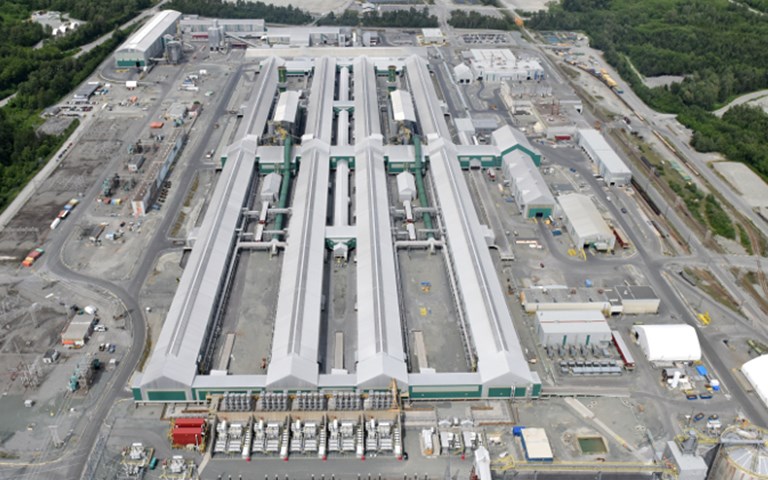Rio Tinto, which has aluminum operations in Quebec and British Columbia, including the Kitmat smelter, spoke out against the proposed U.S. import tariffs on aluminum and steel. Rio Tinto/Dwight Magee
Proposed American tariffs on steel and aluminum have provoked outrage in Canada and the European Union, and more muted criticism from China, but they may not impact commodity prices.
CRU director Paul Robinson said that he still anticipates good commodity performance for both commodities in 2018 if United States President Donald Trump’s 25 per cent import tariff on steel products and 10 per cent tariff on aluminum products do not escalate into a trade war.
But, he told CIM Magazine, “the big concern is whether this escalates into a full-blown trade war and whether that escalation will impact sentiment.”
He said during a presentation at the annual PDAC convention in Toronto that CRU expects the 2018 demand for steel to grow two per cent over last year, and has forecast a 2018 price of US$745 per short ton. Aluminum demand in 2018 is expected to increase 4.7 per cent, and have a 2018 price of US$2,200 per tonne.
Related: Global economic growth, Chinese manufacturing stability promise strong 2018 for commodities
Trump is expected to sign the tariffs into law next week. White House trade official Peter Navarro confirmed to CNN on Saturday morning that Canada, which supplies 40 per cent of U.S. aluminum imports, will not be spared.
“If you exempt Canada, then you have to put big, big tariffs on everybody else. So this is a measured, targeted approach,” Navarro said.
Prime Minister Justin Trudeau said on Friday that Canada “regard[s] the imposition of any new tariffs or any tariffs on steel or aluminum between our two countries as absolutely unacceptable."
Foreign Affairs Minister Chrystia Freeland has said that if the restrictions are imposed Canada “will take responsive measures to defend its trade interests and workers,” but has not specified what measures are being considered.
According to S&P Global Platts, Rio Tinto, which has aluminum operations in Quebec and British Columbia, said in a statement that it will “continue to engage with U.S. officials to underscore the benefits of the integrated North American aluminum supply chain, including the jobs it supports on each side of the border.”
The statement added that “aluminum from Canada has long been a reliable and secure input for U.S. manufacturers — including the defence sector.”
The European Union is currently mulling taxing U.S. bourbon, blue jeans and Harley Davidsons in retaliation.
“We’re unlikely to see no reaction from the Canadians or the Europeans,” Robinson said. “So it’s more about how this is managed over the next three to six months.”
He also said if the tariffs affect the entire steel sector, CRU would expect some impact on U.S. growth prospects in 2018. “There are a number of re-rollers [in the U.S.]that will be affected, on the assumption that the slab they currently re-roll is taxed,” he said.



